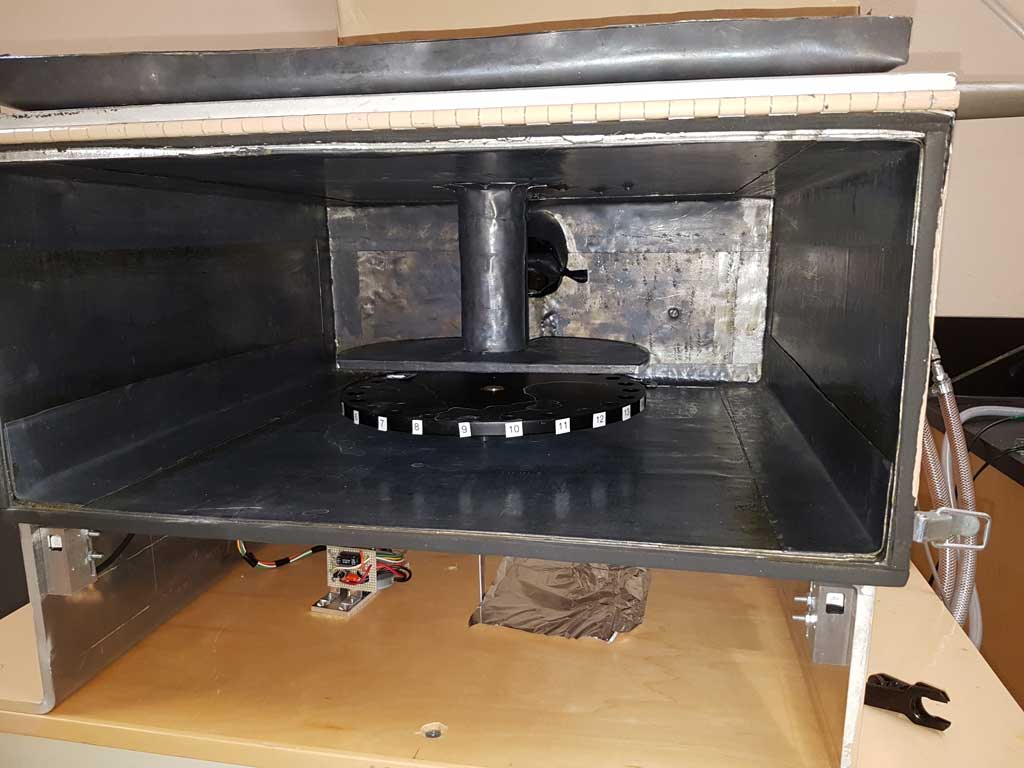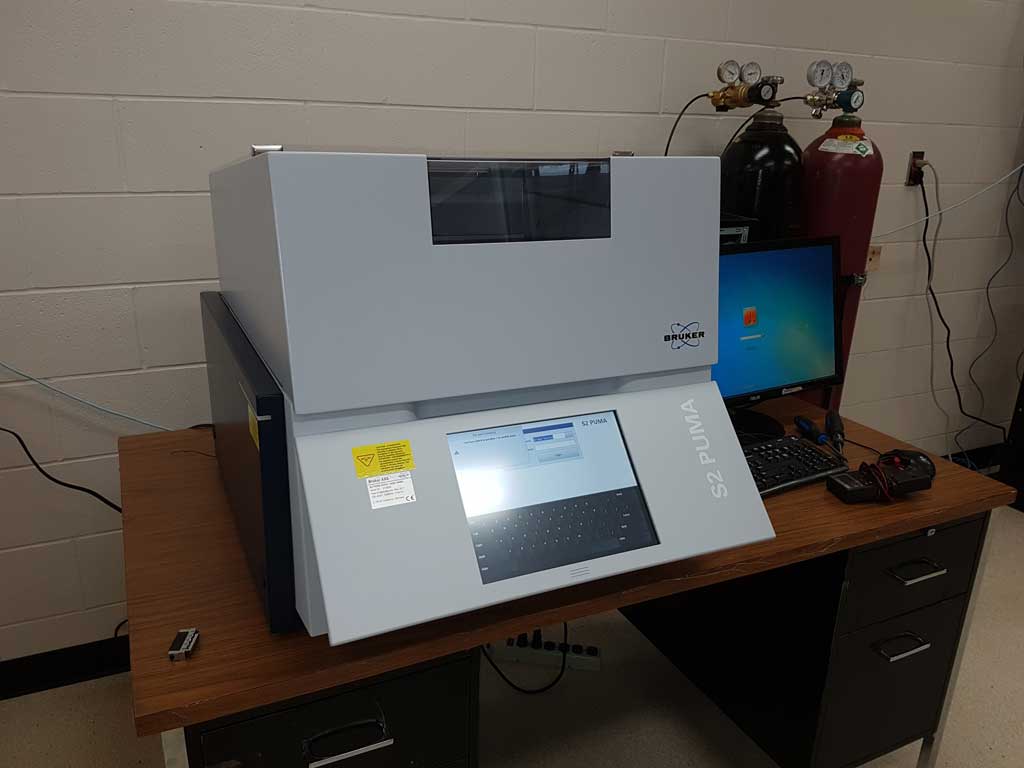X-ray Fluorescence Laboratory
About the Laboratory
The excitation of X-rays generally results in two types of emitted photons – X-ray photons and UV-Vis photons. The UV-Vis or optical photons are low energy emission that could originate from band gap or defect transitions. This low energy emission technique is termed X-ray Excited Optical Luminescence (XEOL) or scintillation and the instrument to measure this was built in-house at the SSSC. The emitted X-ray photons originate from core levels and are measured in X-ray fluorescence (XRF). Detectable elemental concentrations in the samples can be from the ppm range up to 100% of the sample.
X-ray Florescence (XRF) is a very versatile technique and measurements can be done quite quickly with no damage to the samples. Therefore, it can be useful in a wide range of applications and industries. Some of these include agriculture, soil and environmental regulations, coatings/thin films, catalysis, geology and mineralogy, paleontology, food, cosmetics, building materials, the automotive industry as well as many others.
Laboratory Contact
Location:
B1
Phone Number:
(306) 966-1709
Laboratory Managers:
George Belev
R. Sammynaiken
Instruments in Lab
The S2 PUMA, by Bruker Corporation, is an energy-dispersive X-ray Fluorescence (EDXRF) spectrometer for elemental analysis. It is equipped with a Pd anode X-ray tube (50 W) and user a Peltier cooled Silicon Drift Detector. The XRF at the SSSC is best at detecting heavier elements, nothing with an atomic number lower than Aluminum can be accurately detected on the system.
The system at the SSSC has an XY Autochanger that is equipped with a 20-position sample tray and sample grabber. Samples can be run in air, Helium atmosphere, Nitrogen atmosphere or under vacuum to help enhance detection levels of lighter elements.
For more detailed information, click here





